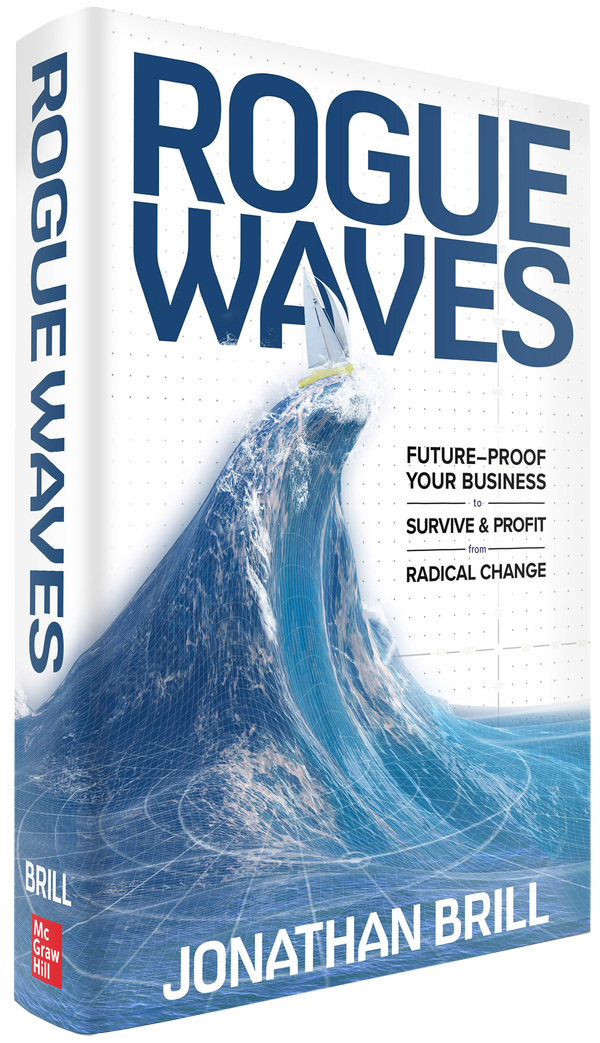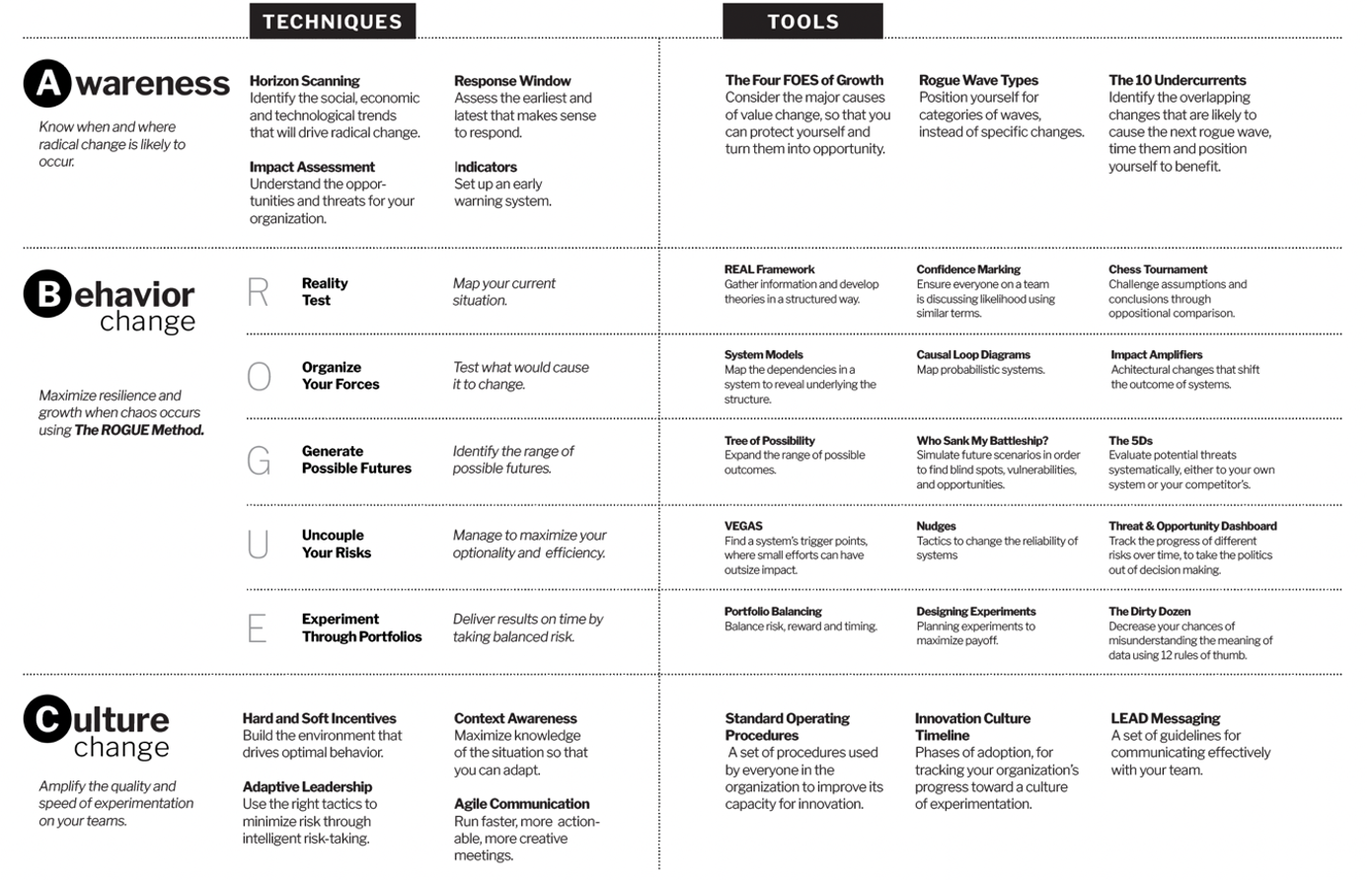
A
What is Rogue Waves?
Will the next wave sink your ship—or will you choose to profit from it?
Rogue waves—radical systemic changes—are hitting business harder, faster and more often. Their violent impact has changed how companies win at strategy. Everyone gets hit by them, but some companies ‘flip their kayaks faster’ and take share while their competition simply try to tread water.
Some organizations consistently outperform their peers when rogue waves hit. They have developed ‘Systematic Intuition’ through simple, practical enhancements to their decision making process.
You can future-proof your business to survive and profit from radical change. Join tens of thousands of executives at organizations like HP, Zoom, Samsung and the United States government who use Rogue Waves’ evidence-based frameworks, The ABCs of Resilient Growth, to maximize foresight, active risk and opportunity management.
This must-read survival guide gives you a practical action plan to:
- Capitalize on the 10 economic, technological, and social undercurrents most likely to collide and reshape the business world
- Implement techniques that all managers at any level can use to turn sudden risks into outsized opportunities
- Create a culture of entrepreneurship, experimentation and adaptation.
- Learn and scale the leadership skills and processes that will help transform you companies into a more resilient and adaptable organization
Timely, important, and essential, Rogue Waves equips you with the predictive tools you need to take advantage of uncertainty, turn chaos into profit, and control your future, so that your company thrives―while your competitors are washed away.
Rogue waves routinely sink large ships at sea. These hundred-foot-tall walls of water well up in seconds when smaller, seemingly manageable waves collide. While they seem random to the terrified crews they kill, they are increasingly forecastable to the experts who study them. This is a good thing—a ship can prepare, if it knows when and where large waves are likely.
Rogue waves also occur in business, and they are occurring more frequently. This is because small, manageable disruptions are colliding more often as the world gets more connected and moves faster. For instance, if you read today’s newspaper, it’s obvious that these loosely related trends could cause massive change as they intersect:


Rogue Waves is a must-have risk response guide for businesses that can help them respond before a storm hits.
Jonathan Brill takes you inside his time tested approaches to anticipating the outcomes of sudden systemic change and guides you as to what to do about it.
If you face disruption, Rogue Waves is your secret weapon.
An indispensable guide for staying ahead.
A very important book for managers.
